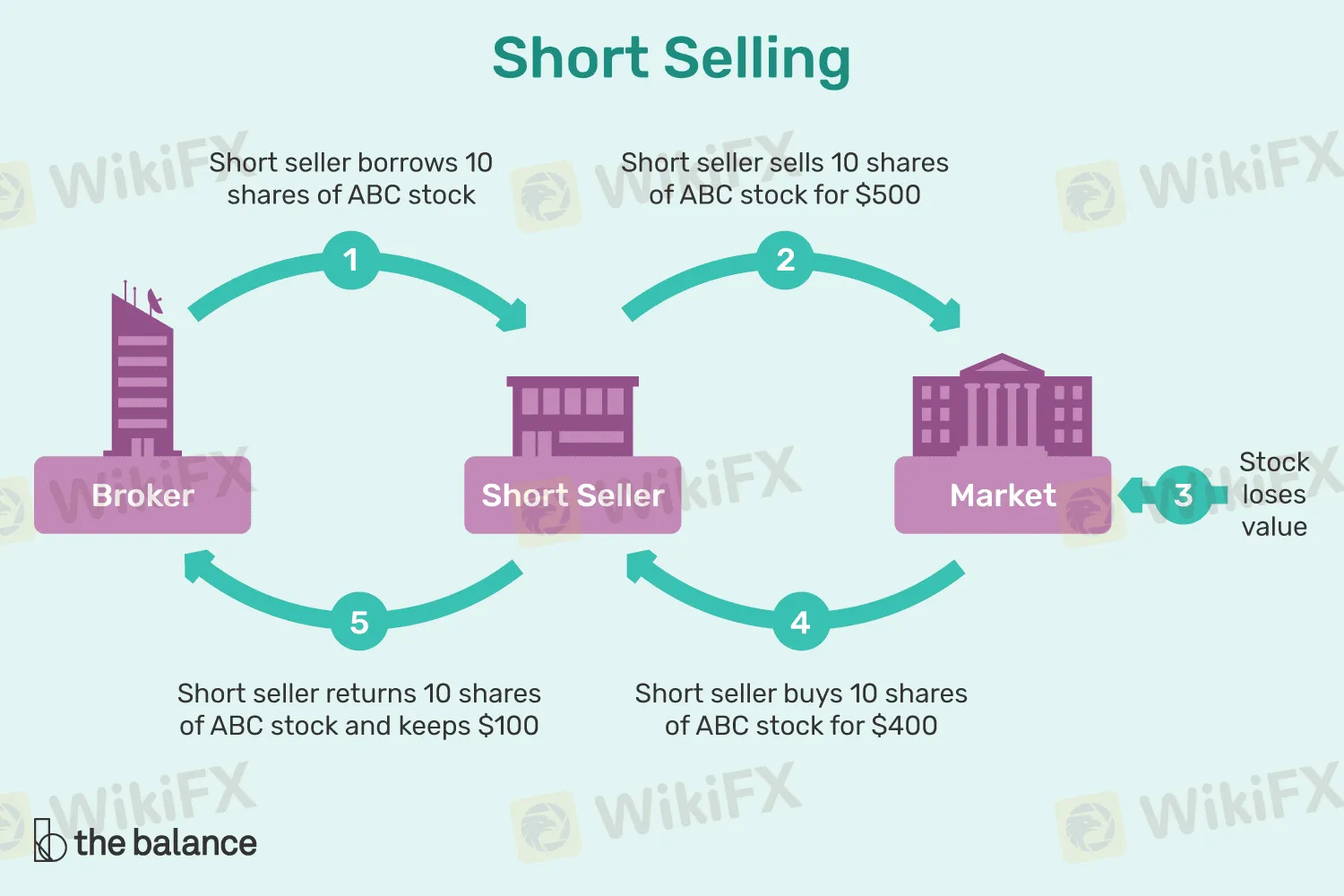简体中文
繁體中文
English
Pусский
日本語
ภาษาไทย
Tiếng Việt
Bahasa Indonesia
Español
हिन्दी
Filippiiniläinen
Français
Deutsch
Português
Türkçe
한국어
العربية
How to Locate Short Selling and Why?
Abstract:Traders choose short selling because it is interesting to speculate and hedge. To speculate means creating a pure price bet for it would decline in the future. If the speculation is wrong, they should buy shares at a loss or higher.

Due to the use of margin in the short selling, the conduct is over a short time period, thus it is near to act of speculation. In addition, there are also people who do short selling to hedge a long position.
The example would be, if you are in the long positions you might aim to sell short against the long position to lock your profit in case you face loss. This is similar to a situation where you limit downside losses in the long position. If you want to create a profit in short selling position, you should consider this scenario. You trade at $50 for instance that would decline in price for the next few months. They would borrow 100 shares then sell them to other investors. So, the trader now short 100 shares to sell something they borrow or not they have. Short selling is possible only when you borrow the shares. So, it is not available sometimes, especially during the situation where traders flock for it.
Less than a month later, the company whose shares are borrowed announced the dismal financial condition, thus the stock fell to around $40. On this occasion, the trader would decide to close this short position and buy the 100 shares at $40 to replace borrowed shares. This is to note that this replacement of the borrowed shares do not include the commissions and margin account charge. The calculation is $1,000: ($50 – $40 = $10 x 100 shares = $1000, said Investopedia.
But it does not mean that it is not prone to failing. Imagine a trader did not close out the short position of the $40, but leave it open for further decline. Then, a competitor enters acquiring the company for $65 takeover per shares. Then, the trader encounters loss. Thus, trader might need to buy back the shares at the higher price.

Disclaimer:
The views in this article only represent the author's personal views, and do not constitute investment advice on this platform. This platform does not guarantee the accuracy, completeness and timeliness of the information in the article, and will not be liable for any loss caused by the use of or reliance on the information in the article.
Read more

Justice Served: Illegal Investment Scheme Ends in RM28 Million Repayment
The Kuala Lumpur High Court has ruled that a Singaporean businessman, Chan Cheh Shin, must return RM28 million to 122 Malaysian investors after the court determined that his investment operations were conducted illegally.

RM900,000 Scammed: The Hidden Dangers of Online Investment Schemes
A 53-year-old factory manager from Malaysia has fallen victim to an online investment scam, losing over RM900,000 of her savings. This case underscores the growing threat of online scams preying on unsuspecting individuals.

Tokyo Police Arrest 4 for Unregistered FX Trading Scheme
Four men in Tokyo were arrested for running an unregistered FX trading operation, collecting over ¥1.6 billion from 1,500 investors.

Doo Group Expands Its Operations with CySEC License
Doo Financial, part of Doo Group, receives a CySEC license, allowing FX/CFD services in Europe. This strengthens its global presence and regulatory standards.
WikiFX Broker
Latest News
BSP Shuts Down Uno Forex Over Serious AML Violations
ACY Securities Expands Global Footprint with South Africa Acquisition
Tokyo Police Arrest 4 for Unregistered FX Trading Scheme
Rupee gains against Euro
Axi Bids AUD 52M to Acquire Low-Cost Broker SelfWealth, Outbidding Competitor Bell Financial
Crypto Influencer's Body Found Months After Kidnapping
US Regulators Tighten Oversight on Bank Anti-Money Laundering Efforts
Doo Group Expands Its Operations with CySEC License
RM900,000 Scammed: The Hidden Dangers of Online Investment Schemes
5 Advantages of Choosing a Regulated Broker
Currency Calculator


